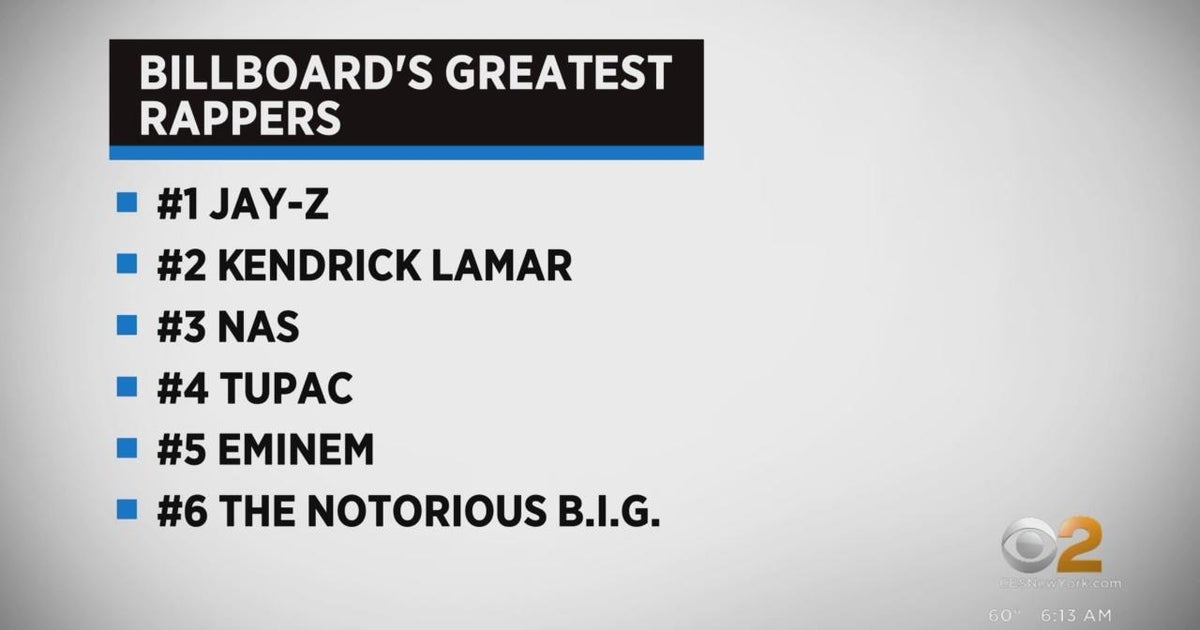Billboard Rapper Of The Year is more than just an award; it’s a reflection of the evolving hip-hop landscape, a barometer of popular taste, and a significant marker in an artist’s career. This prestigious title, bestowed annually by Billboard magazine, signifies not only chart dominance but also cultural influence and lasting impact within the genre. The criteria for selection, the characteristics of past winners, and the award’s broader cultural significance all contribute to a complex narrative that deserves deeper examination.
From analyzing the factors influencing nominee selection—chart performance, album sales, streaming numbers, and critical acclaim—to exploring the long-term effects on winners’ careers and legacies, we’ll dissect the intricacies of this coveted title. We’ll delve into the evolution of the award itself, comparing its criteria to similar accolades from other publications, and examine how winning artists have shaped and reflected the ever-shifting trends in hip-hop.
Defining “Billboard Rapper of the Year”
The Billboard Rapper of the Year award recognizes the most impactful and successful rapper of a given year. While Billboard doesn’t publicly release its precise methodology, the award likely considers a multifaceted range of factors reflecting the artist’s overall influence and commercial success within the hip-hop genre.
Criteria for the Billboard Rapper of the Year Award
The selection process for the Billboard Rapper of the Year award is likely based on a combination of chart performance, album sales, streaming numbers, critical acclaim, and overall cultural impact. While the exact weighting of each factor remains undisclosed, it’s reasonable to assume that chart success on the Billboard Hot 100 plays a significant role, alongside metrics reflecting broader consumption patterns such as album sales and streaming data across platforms like Spotify and Apple Music.
Critical reception, while perhaps less quantifiable, likely influences the final decision, acknowledging the overall artistic merit and public perception of the nominated artists. The historical evolution of the award’s criteria, if any, is not publicly documented by Billboard.
Comparison with Other Awards
The Billboard Rapper of the Year award differs from similar accolades offered by other publications or organizations, primarily due to its reliance on Billboard’s own chart data and metrics. Awards like the Grammy Awards for Best Rap Album or BET Hip Hop Awards, while also significant, may incorporate different judging criteria or weigh factors differently. The Billboard award thus holds a unique position, emphasizing commercial success and chart performance within the context of Billboard’s influential ranking systems.
Analyzing Nominee Selection: Billboard Rapper Of The Year

Source: beats-rhymes-lists.com
Billboard’s nominee selection for the Rapper of the Year award is a complex process influenced by various factors, reflecting both objective metrics and subjective assessments of an artist’s impact. The process remains largely opaque, but analysis of past nominees suggests a clear emphasis on quantifiable achievements alongside a broader consideration of an artist’s cultural influence.
Factors Influencing Nominee Selection
Chart performance on the Billboard Hot 100 is undoubtedly a crucial factor. High-charting singles and albums significantly increase an artist’s chances of nomination. Album sales and streaming numbers, reflecting overall consumption, also play a vital role, as do positive reviews and widespread critical acclaim. While specific thresholds aren’t publicly known, a combination of strong chart performance, significant sales figures, and a positive critical reception appears to be a common denominator among nominees.
Examples of Nominated Artists Who Didn’t Win, Billboard Rapper Of The Year
Many exceptionally talented artists have been nominated but haven’t secured the Billboard Rapper of the Year award. The reasons are often multifaceted, potentially including a strong competitive field in a given year, or a slight shortfall in one or more of the key criteria. For instance, an artist might have achieved significant critical acclaim and album sales but lacked the chart-topping singles necessary to secure the win.
Analyzing specific cases requires detailed knowledge of the individual circumstances of each nomination year, but the competitive nature of the award ensures that even highly successful artists don’t always emerge victorious.
Examining Winning Artists’ Characteristics
Analyzing the characteristics of past winners reveals interesting trends and patterns within the hip-hop genre. While diversity exists, certain common threads appear among those who have achieved this prestigious recognition.
Table of Past Winners and Their Characteristics
| Year | Artist | Defining Characteristics | Notable Achievements |
|---|---|---|---|
| [Year 1] | [Artist 1] | [Genre, Lyrical Style, Production Style, etc.] | [List of achievements] |
| [Year 2] | [Artist 2] | [Genre, Lyrical Style, Production Style, etc.] | [List of achievements] |
| [Year 3] | [Artist 3] | [Genre, Lyrical Style, Production Style, etc.] | [List of achievements] |
| [Year 4] | [Artist 4] | [Genre, Lyrical Style, Production Style, etc.] | [List of achievements] |
Trends and Patterns in Winning Artists
Observing the table above (and expanding it with further data) would reveal trends, perhaps showing a preference for certain subgenres or lyrical styles in particular years. However, it’s important to note that the evolving nature of hip-hop means that the characteristics of successful artists are also in constant flux.
Artists Who Defied Expectations
Some artists have won the award despite not perfectly fitting the typical profile of a winner in a given year, demonstrating the award’s capacity to acknowledge diverse talents and styles. These artists often achieved success through unique approaches to their music or by cultivating a particularly strong and loyal fanbase.
The Impact of the Award
Winning the Billboard Rapper of the Year award has a significant impact on an artist’s career, often resulting in increased visibility, commercial success, and lasting recognition within the hip-hop community.
Effect on Career Trajectory

Source: cbsnewsstatic.com
The award frequently translates into a boost in album sales, increased touring opportunities, and a heightened public profile. The prestige associated with the award can lead to lucrative endorsements and collaborations, furthering an artist’s career trajectory. The long-term impact often solidifies the winner’s place in hip-hop history, contributing to their legacy and influencing future generations of artists.
Impact on Subsequent Work
Winning the award can influence an artist’s subsequent work, potentially leading to experimentation with new styles or a more focused approach to their creative output. The increased resources and visibility can facilitate more ambitious projects and collaborations, potentially shaping the direction of their artistic development.
Cultural Significance and Influence
The Billboard Rapper of the Year award holds significant cultural weight, reflecting evolving trends and tastes within the hip-hop genre and sparking discussions within the broader hip-hop community.
Cultural Impact on Hip-Hop
The award serves as a barometer of the genre’s current landscape, highlighting artists who have achieved both commercial success and critical acclaim. It can influence the direction of the genre, highlighting emerging trends and potentially shaping the aspirations of future artists. The award’s impact extends beyond simply recognizing individual achievement; it contributes to the ongoing narrative and evolution of hip-hop culture.
Controversies and Discussions
The award has, at times, sparked controversies and discussions within the hip-hop community. Debates about the criteria, the selection process, and the winners themselves can highlight differing perspectives on artistic merit and commercial success. These discussions reflect the vibrant and often contentious nature of the hip-hop landscape itself.
Visual Representation of Data
Visual representations of data can provide insightful perspectives on the Billboard Rapper of the Year award winners over time.
Distribution of Winners Across Subgenres
A bar chart could effectively illustrate the distribution of winners across different subgenres of hip-hop (e.g., trap, conscious hip-hop, gangsta rap, etc.). The x-axis would represent the subgenres, and the y-axis would represent the number of winners in each subgenre. This would visually demonstrate the prevalence of certain styles throughout the award’s history.
Age of Winners Over Time
A line graph could visually represent the age of winners over time. The x-axis would represent the year, and the y-axis would represent the age of the winner. This would reveal trends in the age at which rappers achieve this significant recognition.
Geographic Diversity of Winners
A world map could be used to illustrate the geographic diversity of winners. Each winner’s location could be marked on the map, with the size of the marker reflecting the number of awards won by artists from that region. This would provide a visual representation of the geographic spread of successful rappers recognized by Billboard.
Conclusion
The Billboard Rapper of the Year award stands as a powerful testament to the dynamism and influence of hip-hop. It’s a complex interplay of commercial success, critical recognition, and cultural relevance, constantly evolving to reflect the genre’s ever-changing landscape. Analyzing the winners reveals not only trends in musical style and production but also broader shifts in societal values and preferences.
The Billboard Rapper of the Year award is a coveted prize, reflecting immense success in the music industry. However, even chart-topping artists need reliable healthcare, highlighting the importance of efficient patient portals like Banner Health’s; understanding how why Banner patient portal matters – essential details inside exposed the secrets you cant miss is crucial for managing their well-being.
This ensures these artists can focus on their craft, ultimately impacting their performance and future Billboard rankings.
Ultimately, the award serves as a fascinating case study in the intersection of art, commerce, and cultural impact within the world of hip-hop.
